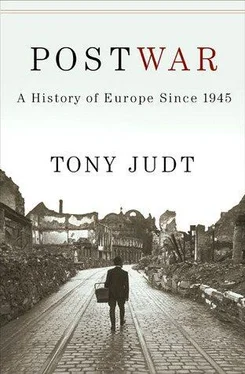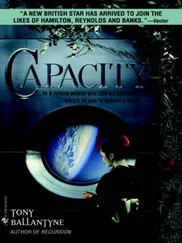In the winter of 1996, following palpably fraudulent results in local elections, Serb students demonstrated for three months in the streets of Belgrade, protesting Milošević’s dictatorship and demanding change. They received no support or encouragement from the Western powers, however, who looked upon Milošević as a stabilizing factor in the post-Dayton years and did nothing to weaken his position.
And as with the Sarajevo atrocity, Belgrade and its apologists insisted either that it never happened or, when that became untenable, that it was a staged ‘provocation’ by the victims themselves.
Janvier’s performance aroused demands in France and elsewhere that he be co-indicted for responsibility in the subsequent massacre.
Among a younger generation, business-oriented and impatient to escape their country’s encumbering past, it even brought forth a new conformism to substitute for the wooden public language of Communism: uncritical adulation for the mantras of neo-classical economics blissfully unclouded by any familiarity with their social cost.
Giving rise to nationalist jitters at the prospect of Prague’s re-absorption into a Greater German Co-Prosperity Sphere—and a popular joke: “I have some good news and some bad news about Czechoslovakia’s post-Communist prospects.” “What’s the good news?” “The Germans are coming!” “And the bad news?” “The Germans are coming.”
A notable exception to this story is Estonia, which has benefitted hugely from its virtual adoption by its Scandinavian neighbours. In 1992, when it left the ruble zone, 92 percent of Estonia’s trade was with the former Soviet Union. Five years later over three quarters of that trade was with the West, much of it across the Baltic.
And inefficiency—one irony of ritualized privatization in eastern Europe was that once collective farms were broken up into tiny plots they could no longer be worked by tractor but only by hand.
It is estimated that inflation in post-Communist Ukraine reached an annual rate of 5,371 percent in 1993.
But Romania is perhaps unique. In the Bucharest mayoral elections of 1998 the Romanian Workers’ Party blanketed the city with posters of Nicolae Ceauşescu. ‘They shot me’, the posters read. ‘Do you live any better? Remember all I did for the Romanian people’.
And even on occasion with unreconstructed Fascists, nostalgic for the better days of World War Two—notably in Croatia.
Though not, perhaps, across the self-serving moves of certain prominent writers—who would have risked little by declining their services: e.g. Christa Wolf, whose much-vaunted literary ambivalence appears somehow less admirable in the light of later revelations of her cooperation with the Stasi.
By way of comparison, the Gestapo in 1941 had a staff of fewer than 15,000 to police the whole of greater Germany.
From the Czech lustrace , meaning ‘bringing to light’, though the translation carries purgative connotations as well.
I am indebted to Dr Jacques Rupnik for the reference.
Julius Caesar’s Gallia Belgica lay athwart the line that was to separate Gallo-Roman territories from the Franks and mark the boundary thenceforth demarcating Latinate, French-dominated Europe from the Germanic north.
The main newspapers, Le Soir and De Standaard , have almost no readers outside the French- and Dutch-speaking communities respectively. As a result, neither takes much trouble to report news from the other half of the country. When someone speaks Dutch on Walloon television (and vice-versa) subtitles are provided. Even the automatic information boards on interregional trains switch back and forth between Dutch and French (or to both, in the case of Brussels) as they cross the regional frontiers. It is only partly a jest to say that English is now the common language of Belgium.
The more historically disposed perhaps called to mind the passage in the Mémorial de Sainte-Hélène by the Comte de Las Cases, where the exiled Napoléon Bonaparte envisages a future ‘association européenne’ with ‘one code, one court, one currency’.
Poland, Hungary and the Czech Republic joined in 1999, just in time to be (somewhat reluctantly) committed to NATO’s engagement in Kosovo. Bulgaria, Romania, Estonia, Latvia, Lithuania, Slovakia and Slovenia were admitted in 2004.
The economic recession of the early Nineties also helped, contributing to a widespread view in Sweden especially that the country’s exporters could not survive without unrestricted access to the European market.
See Chapter 21. The pain was real enough. East European countries lost between 30 and 40 percent of their national income in the years after 1989. The first to recover its 1989 level was Poland, in 1997; others took until 2000 or beyond.
A highly optimistic assumption. In the years following their accession to the EC in 1986, the economies of Spain and Portugal grew on average between 1 percent and 1.5 percent faster than the rest of the Community.
On January 1st 2002 a total of 600,000,000,000 euros in cash was seamlessly distributed and introduced across the euro-zone countries, a remarkable technical achievement.
If they still worked as smoothly as they did it was at least in part because the federal machinery was so very well oiled, not least by money: in the 1990s Switzerland was still by most measures the world’s wealthiest country.
Quoted in Kenneth Harris, Attlee (London, 1984), p. 63.
The decline in the Dutch vote may be especially ominous. Once the kernel of European enthusiasm and a generous contributor to EC and EU funds, the Netherlands in recent years has been retreating into itself—a development both illuminated and accelerated by the rise of Pim Fortuyn and his subsequent assassination.
It is perhaps worth adding that in January 2004 only one French adult in fifty could name the ten new EU member states.
Not everywhere, however: in the UK—as in the US—the income spread between the wealthy and the rest grew steadily wider from the late 1970s.
The ECJ should not be confused with the European Court of Human Rights, set up under the auspices of the Council of Europe to enforce the 1953 Convention for the Protection of Human Rights and Fundamental Freedoms.
In Giscard’s ‘Constitution for Europe’, Article 3(I) defines the Union’s aims as being ‘to promote peace, its values, and the well-being of its peoples’.
Quoted by Andrew Moravscik in The Choice for Europe (New York, 1998), p. 265.
Mordantly predicted at the time by the US Secretary of State Lawrence Eagleburger, who foresaw that the Europeans ‘will screw up and this will teach them a lesson’.
Читать дальше












